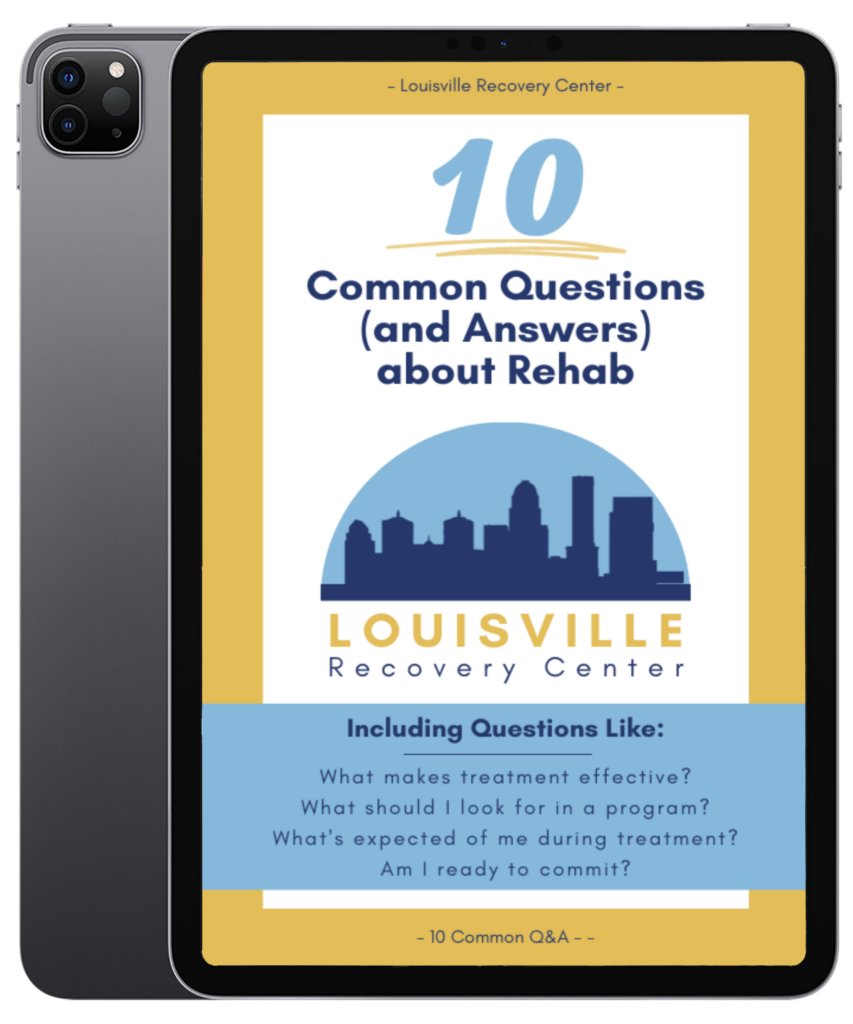Guide to Nashville Addiction Treatment
Tennessee has seen an increase in overdose deaths – with 3,038 opioid overdose deaths in 2021. These deaths accounted for 80% of all drug overdose deaths in the state. When it comes to substance abuse treatment, Nashville is increasing its efforts, with more people gaining access to facilities providing rehab and mental health services.
Finding a Nashville addiction recovery facility to help guide you through the recovery process can be a vital tool and help set you up for long-term success.
What is Treated at a Substance Abuse Treatment Center in Nashville?
Substance abuse treatment centers in Nashville typically specialize in treating a range of substance use disorders and related conditions. Some common types of disorders treated at these centers include, but are not limited to:
- Alcohol Use Disorder (AUD): This is a chronic relapsing brain disorder characterized by an impaired ability to stop or control alcohol use despite adverse social, occupational, or health consequences.
- Drug Use Disorders: These can include dependencies on various substances such as opioids (heroin, prescription painkillers), stimulants (cocaine, methamphetamine), cannabis, hallucinogens, and prescription medications like benzodiazepines.
- Co-occurring Mental Health Disorders: Many individuals with substance use disorders also have co-occurring mental health conditions such as depression, anxiety disorders, bipolar disorder, post-traumatic stress disorder (PTSD), or personality disorders. Treatment centers often provide integrated care for both substance abuse and mental health issues.
- Poly-substance Abuse: Some individuals may abuse multiple substances simultaneously, which can complicate treatment and require specialized care.
- Dual Diagnosis or Co-occurring Disorders: This refers to the presence of both a substance use disorder and a mental health disorder. Treatment for dual diagnosis patients involves integrated care that addresses both conditions simultaneously.

Fill Out This Quick Form To Download Our FREE 10 Q&A About Rehab eBook
Types of Treatment Options Available in a Nashville Rehab
Rehab centers in Nashville offer a variety of treatment options tailored to meet the diverse needs of individuals struggling with substance abuse. These treatment options may be offered individually or as part of a comprehensive, multi-disciplinary approach to address the complex needs of individuals in recovery. The specific combination of therapies and interventions will vary based on each person’s unique circumstances and treatment goals.
Inpatient Rehabilitation (Residential Treatment)
This involves residing at the treatment facility for a designated period, often ranging from several weeks to several months. Inpatient rehab provides a structured environment with round-the-clock supervision and intensive therapy.
Outpatient Rehabilitation
Outpatient programs allow individuals to attend therapy sessions and receive treatment while living at home. Outpatient programs vary in intensity, with some requiring several hours of participation per day, several days a week, while others may involve fewer sessions.
Detoxification (Detox) Programs
Detox programs help individuals safely manage withdrawal symptoms when discontinuing substance use. Medical professionals monitor patients closely and may administer medications to alleviate discomfort and reduce the risk of complications.
Individual Counseling
In individual counseling sessions, a trained counselor or therapist works one-on-one with the person seeking treatment to explore underlying issues contributing to substance use. They will also identify triggers and patterns of behavior and develop coping strategies and skills for managing cravings and avoiding relapse.

Group Therapy
Group therapy sessions offer peer support and the opportunity to share experiences, challenges, and successes with others facing similar struggles. Group therapy can foster a sense of community and provide valuable insights and encouragement.
Family Therapy
Family therapy involves sessions that include family members or loved ones to address the impact of substance abuse on relationships. Through these sessions, the group can develop healthier communication and coping skills within the family unit.
Cognitive-Behavioral Therapy (CBT) and Motivational Interviewing (MI)
CBT is a common therapeutic approach used in rehab settings to help individuals identify and change negative thought patterns and behaviors associated with substance abuse. MI is a counseling technique that helps individuals explore and resolve ambivalence about change, increase motivation for recovery, and set achievable goals.
Medication-Assisted Treatment (MAT)
MAT involves the use of FDA-approved medications, such as methadone, buprenorphine, or naltrexone, in combination with counseling and behavioral therapies to treat opioid or alcohol use disorders. Facilities offering MAT will closely monitor medications and adjust as necessary to maximize the recovery experience.
Holistic Therapies
Some rehab centers offer holistic therapies such as yoga, mindfulness meditation, art therapy, equine therapy, or acupuncture to promote overall well-being and address the physical, emotional, and spiritual aspects of recovery. Holistic therapies provide a personalized approach to addiction treatment – making the experience as unique as the individual the plan was created for.
Aftercare Planning and Support
Effective rehab programs include comprehensive aftercare planning to support individuals as they transition back into their daily lives. This may involve ongoing therapy, support groups, sober living arrangements, vocational assistance, and relapse prevention strategies.
Teen Treatment Program
Some treatment centers may offer a program specifically for teens. At Louisville Recovery Center, we offer an IOP for teens that is designed to work around school and work obligations. This program provides tailored support for teens dealing with addiction.
The Admissions Process of a Nashville Addiction Rehab
The admission process for an addiction treatment facility in Nashville involves several steps to ensure that individuals receive appropriate care tailored to their needs. The treatment facility’s staff strives to provide compassionate support, answer any questions or concerns, and ensure a smooth transition into treatment. They also work collaboratively with you to address any barriers to treatment and provide the necessary support for successful recovery.
Here’s a general overview of what the admission process may include:
- Initial Assessment: The process often begins with an initial assessment, which may be conducted over the phone or in person. During this assessment, an intake coordinator or admissions counselor gathers information about the individual’s substance use history, medical and mental health history, treatment goals, insurance coverage, and any other relevant factors.
- Verification of Insurance Coverage: If the individual has health insurance, the treatment facility will typically verify their insurance coverage to determine what services are covered and any out-of-pocket costs. This information helps the individual understand their financial responsibilities and the extent of their insurance benefits.
- Clinical Assessment: After the initial assessment, the individual may undergo a more comprehensive clinical assessment conducted by a licensed clinician or addiction specialist. This assessment evaluates the severity of the substance use disorder, any co-occurring mental health conditions, medical concerns, and other factors that may influence treatment planning.
- Treatment Planning: Based on the results of the clinical assessment and the individual’s treatment goals, the treatment team develops a personalized treatment plan. This plan outlines the recommended level of care (e.g., inpatient, outpatient), specific therapies and interventions, and goals for recovery.
- Pre-Admission Paperwork: Before admission to the treatment facility, the individual or their legal guardian may be required to complete paperwork, such as consent forms, financial agreements, and HIPAA privacy forms. These documents ensure that the individual understands their rights and responsibilities during treatment.
- Coordination of Logistics: The admissions staff help coordinate logistical details, such as scheduling the admission date and time, arranging transportation to the facility if needed, and providing information about what to bring (e.g., clothing, toiletries).
- Admission and Orientation: On the day of admission, the individual arrives at the treatment facility and completes the admission process. This may involve meeting with staff members, receiving a tour of the facility, and attending an orientation session to familiarize themselves with the program rules, schedule, and expectations.
- Initial Assessment and Treatment: After admission, the individual undergoes a more thorough assessment by medical and clinical staff to finalize the treatment plan and begin receiving services. This may include medical detoxification, if necessary, individual and group therapy, medication management, and other therapeutic interventions.

Choosing Substance Abuse Treatment Centers in Nashville
Louisville Recovery Center understands how hard it can be to find the right addiction treatment center – even in Nashville. Our trained and experienced staff is ready to answer any questions you might have about attending a substance abuse rehab center and take the first step toward a life free from addiction.
If you or a loved one are considering addiction treatment in Nashville, reach out to Louisville Recovery Center to learn more about the substance abuse treatment process and to learn more about the options available for rehabilitation.
